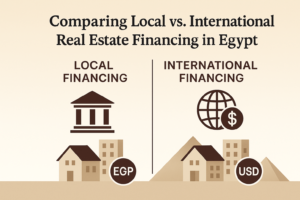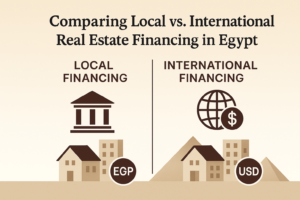The Growing Opportunities in Real Estate Development and Investment
Real estate has long been a cornerstone of wealth creation, offering lucrative returns to investors and developers worldwide. As economies expand, urbanization increases, and demand for housing, commercial spaces, and industrial infrastructure grows, real estate development and investment continue to be among the most profitable industries.
In 2025, the real estate market is experiencing rapid transformation, with smart cities, sustainable housing projects, and mixed-use developments reshaping urban landscapes. From residential property investments to large-scale commercial projects, industrial zones, and hospitality developments, the industry is thriving across multiple sectors.
This guide explores the fundamentals of real estate development, investment strategies, top real estate markets, and the leading developers shaping the industry today. Whether you’re a seasoned investor or looking to enter the market, understanding how to maximize return on investment (ROI), identify high-growth areas, and mitigate risks is crucial to success.
1. Understanding Real Estate Development and Investment
A. What Is Real Estate Development?
Real estate development involves the planning, design, financing, construction, and management of property projects. It includes:
- Residential developments – Apartments, villas, gated communities.
- Commercial projects – Office buildings, retail spaces, shopping malls.
- Mixed-use developments – Combining residential, office, and leisure spaces.
- Industrial and logistics hubs – Warehouses, factories, and distribution centers.
B. Key Players in Real Estate Development
- Property developers – Companies and individuals who plan and execute projects.
- Real estate investors – Individuals or firms that finance developments for long-term returns.
- Government and urban planners – Authorities responsible for zoning, permits, and infrastructure.
- Construction firms and contractors – Build and deliver real estate projects.
C. The Role of Investment in Real Estate Growth
Real estate investment fuels development, providing the necessary capital to purchase land, finance construction, and market properties. Investors earn returns through:
- Capital appreciation – Property values increasing over time.
- Rental income – Generating revenue from tenants.
- Flipping properties – Buying low and selling high after renovation.
2. Types of Real Estate Investment Strategies
A. Buy and Hold Strategy
Investors purchase properties and hold them long-term, earning steady rental income and benefiting from appreciation. This strategy works well for:
- Residential apartments and villas in high-demand areas.
- Commercial office spaces in business districts.
- Retail properties in shopping hubs.
B. Fix and Flip Strategy
This involves buying undervalued properties, renovating them, and selling at a profit. Investors must carefully analyze:
- Market trends to ensure demand.
- Renovation costs vs. expected resale value.
- Location selection for maximum return.
C. Real Estate Crowdfunding
A modern way of investing where multiple investors pool funds to finance projects. Benefits include:
- Lower investment threshold.
- Diversification across multiple assets.
- Access to large-scale developments without full ownership.
D. REITs (Real Estate Investment Trusts)
Investors buy shares in real estate portfolios, managed by professional firms. REITs provide:
- Passive income without property management.
- Liquidity compared to direct real estate investment.
- Diversification across different property types.
3. Top Real Estate Markets for Investment
A. Emerging Markets with High ROI
Developing cities and growing economies offer massive opportunities due to rising demand, affordable property prices, and high rental yields.
- Egypt – The New Administrative Capital, New Alamein, and New Cairo are booming.
- UAE – Dubai and Abu Dhabi continue to attract international investors.
- Turkey – Istanbul and Antalya offer strong returns due to increasing foreign investment.
B. Smart Cities and Sustainable Developments
Modern investors are looking for smart, energy-efficient, and sustainable properties. Top cities include:
- Dubai’s Smart City projects.
- Egypt’s New Administrative Capital.
- Singapore’s green building developments.
C. High-Growth Urban Centers
Major global cities with expanding business districts, strong job markets, and infrastructure improvements remain prime real estate investment locations:
- London, New York, Tokyo, and Shanghai.
- Cairo, Riyadh, and Lagos in Africa and the Middle East.
4. Leading Real Estate Developers and Investors Shaping the Industry
A. Top Global Real Estate Developers
- Emaar Properties – A major force in the Middle East, known for Burj Khalifa, Dubai Marina, and luxury developments.
- DAMAC Properties – Specializes in high-end residential and commercial properties.
- Brookfield Asset Management – A top global player in commercial real estate.
- China Evergrande Group – A leader in residential and mixed-use developments.
B. Key Investors in Real Estate
- Private equity firms like Blackstone Group.
- Sovereign wealth funds investing in prime real estate globally.
- Individual high-net-worth investors purchasing luxury and rental properties.
5. Future Trends in Real Estate Development and Investment
A. Smart Homes and AI-Driven Property Management
Properties equipped with IoT technology, AI-driven security systems, and automated property management are becoming the new standard.
B. Sustainable and Green Building Investments
Investors are favoring eco-friendly buildings with energy-efficient systems, solar panels, and sustainable materials.
C. Rise of Co-Living and Co-Working Spaces
Modern real estate developments are catering to young professionals and digital nomads, offering shared living and working spaces with high-end amenities.
6. FAQs About Real Estate Development and Investment
1. What are the best locations for real estate investment in 2025?
Emerging markets like Egypt, UAE, and Turkey offer high ROI, while developed cities like London, New York, and Dubai remain top investment choices.
2. How can beginners invest in real estate?
New investors can start with rental properties, real estate crowdfunding, or REITs, minimizing risks while gaining exposure to the market.
3. What are the risks in real estate investing?
- Market fluctuations and economic downturns.
- Property depreciation and maintenance costs.
- Legal and regulatory changes affecting ownership rights.
4. How do real estate developers finance projects?
Through private equity, bank loans, real estate investment trusts (REITs), and joint ventures with investors.
5. What’s the expected ROI for real estate investments?
ROI varies by location and asset type, but investors typically see 8-15% annual returns on high-growth properties.
Maximize Your Real Estate Investments with Expert Guidance
Looking for the best real estate investment opportunities? Consult is a leading real estate investment and development consultancy, offering expert guidance in market analysis, property acquisition, portfolio management, and ROI optimization.

















